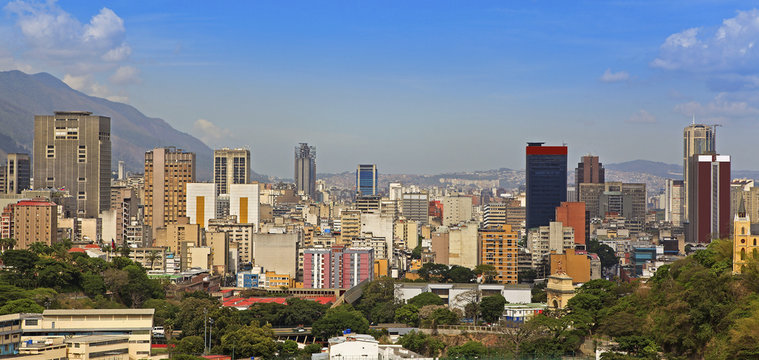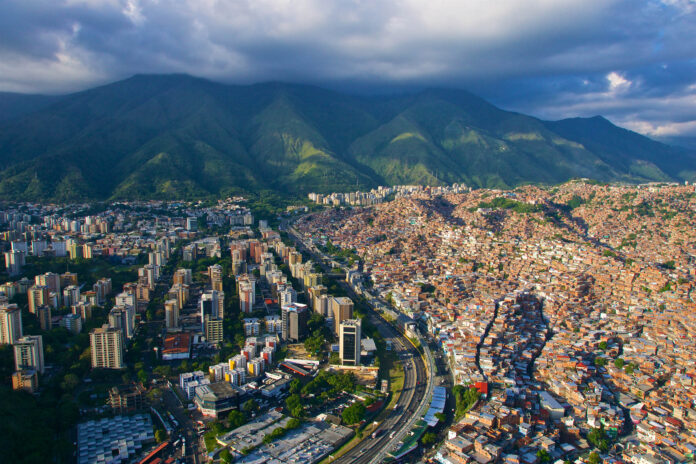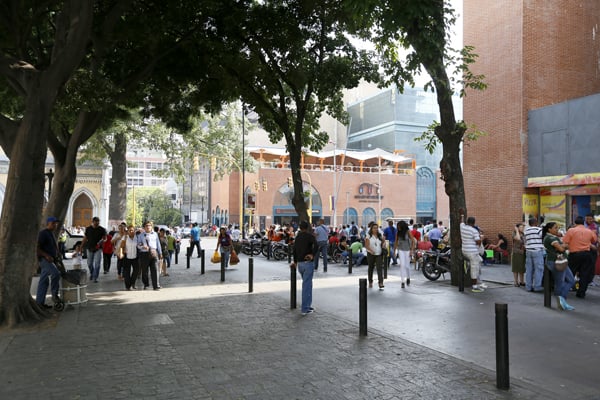An Overview of Venezuela: Land of Rich Resources
The Bolivarian Republic of Venezuela is a complex business location, located on South America’s northern coast, is a nation of breathtaking landscapes and immense natural wealth. Home to the world’s largest proven oil reserves, Venezuela once held a prominent position in the global economy as a leading oil producer.
However, despite its resource abundance, the country has faced prolonged socio-economic challenges. Political instability, hyperinflation, and resource mismanagement have significantly impacted the nation’s potential for prosperity, leaving its people to navigate through increasingly difficult circumstances.
The Evolving Standard of Living in Venezuela
Venezuela’s standard of living has experienced a sharp decline over recent decades. Once celebrated as one of Latin America’s wealthiest nations, the country now struggles with widespread poverty, food insecurity, and inadequate access to essential services like healthcare and education. Hyperinflation has rendered the Bolívar, Venezuela’s national currency, almost worthless, making necessities unaffordable for much of the population. Many citizens have turned to bartering or using foreign currencies like the U.S. dollar to meet their needs.
Despite these widespread hardships, socio-economic disparities persist. While a significant portion of the population endures severe deprivation, wealthier individuals and expatriates manage to maintain a relatively better quality of life by accessing private services and foreign currency reserves. These groups often rely on imports for goods and healthcare, bypassing the country’s failing public systems.
Understanding Personal Taxes in Venezuela
Venezuela employs a progressive personal tax system, where tax rates increase alongside income levels. The Servicio Nacional Integrado de Administración Aduanera y Tributaria (SENIAT) oversees tax collection and administration. Residents are taxed on their global income, whereas non-residents are only liable for income generated within Venezuela.
Personal income tax rates range from 6% to 34%, depending on the taxpayer’s earnings. Various deductions and exemptions exist to ease the tax burden, including provisions for dependents, educational expenses, and healthcare costs. While these tax policies aim to support economic equity, the country’s broader economic instability complicates compliance and enforcement.

Corporate Taxation: A Heavy Burden for Venezuelan Businesses
Corporate taxes in Venezuela are among the highest in the region, creating significant challenges for businesses operating in the country. The standard corporate tax rate is set at 34%, but companies in the oil sector face even higher rates, often exceeding 50%. Given that oil is the backbone of Venezuela’s economy, these elevated taxes contribute significantly to government revenues but also discourage investment in this critical sector.
Additionally, businesses are subject to a 16% value-added tax (VAT) on goods and services, along with payroll taxes, municipal levies, and industry-specific contributions. These cumulative tax obligations present substantial hurdles for companies attempting to navigate Venezuela’s complex economic environment.
Major Economic Drivers: Venezuela’s Key Industries
Venezuela’s economy has long been dominated by the oil and gas sector, which accounts for nearly 90% of its exports and a significant share of government income. However, this heavy reliance on oil has stifled diversification, leaving other industries underdeveloped. Notable sectors include:
- Agriculture:
Venezuela’s fertile lands and favorable climate support the cultivation of crops like coffee, cocoa, rice, and sugarcane. Despite its potential, the agricultural sector faces obstacles such as outdated infrastructure, limited investment, and market inefficiencies. - Mining:
Rich in gold, diamonds, and bauxite, Venezuela has untapped potential in its mining sector. While the industry remains underdeveloped, there is significant room for future growth, particularly with strategic investments. - Tourism:
Boasting iconic attractions like Angel Falls and a picturesque Caribbean coastline, Venezuela has immense tourism potential. However, political instability and security concerns have hampered the sector’s development. - Manufacturing:
The manufacturing sector, including food processing, textiles, and cement production, primarily serves domestic consumption. Expansion remains limited due to economic uncertainty and supply chain disruptions.
Efforts to diversify the economy are ongoing but have yet to yield substantial progress due to governance issues and limited foreign investment.
Hyperinflation and the Cost of Living in Venezuela
Venezuela has become synonymous with hyperinflation, a crisis that has wreaked havoc on the nation’s economy. With inflation rates reaching unprecedented levels, the Bolívar has suffered repeated devaluations, forcing many citizens to abandon the local currency in favor of the U.S. dollar or barter systems.
The cost of living in Venezuela varies dramatically based on access to foreign currency. For locals dependent on the Bolívar, basic goods such as food and medicine are often unaffordable due to limited availability and exorbitant prices. In contrast, those with access to dollars enjoy relatively lower costs but still face challenges like unreliable utilities and inconsistent services. Hyperinflation has exacerbated wealth disparities, making economic survival an uphill battle for the majority.
Property Tax, Sales Tax, and Service Tax in Venezuela
Venezuela’s tax framework includes several essential components for individuals and businesses:
- Property Tax:
Property tax is levied at the municipal level, with rates varying by location, property type, and value. While the rates are generally low, inconsistent property valuations and enforcement mechanisms can create challenges for property owners. - Value-Added Tax (VAT):
A 16% VAT is applied to the sale of goods and services. Necessities such as food and medicine are exempt, while luxury items may attract higher rates. This tax is a significant revenue source for the government and affects businesses and consumers alike. - Service Taxes:
Certain services, including telecommunications, financial transactions, and entertainment, may incur additional levies. Businesses must ensure compliance with these taxes to avoid penalties.
Business Structures Available in Venezuela
Entrepreneurs and foreign investors have several options when establishing a business in Venezuela. The most common business entities include:
- Corporation (Sociedad Anónima or S.A.):
This is the preferred structure for large businesses, requiring a minimum of two shareholders. Shareholder liability is limited to their capital contributions, protecting them from personal financial risk. - Limited Liability Company (Sociedad de Responsabilidad Limitada or S.R.L.):
Ideal for small and medium enterprises, an S.R.L. can have up to 20 shareholders. Like corporations, liability is restricted to the shareholders’ investment. - Branch of a Foreign Company:
Foreign companies can operate directly in Venezuela by registering a branch. While this structure allows for local operations, it remains legally tied to the parent company. - Partnerships:
Venezuela recognizes both general and limited partnerships. General partners have unlimited liability, while limited partners’ liability is confined to their contributions.
Licensing Requirements for Starting a Business in Venezuela
Launching a business in Venezuela involves adhering to various licensing and regulatory requirements. The key steps include:
- Registration with the Commercial Registry:
Every business must register with the local commercial registry to gain legal status. This step formalizes the business and allows it to operate within the country. - Tax Identification Number (RIF):
All businesses must obtain a Taxpayer Identification Number (RIF) from the National Integrated Service for the Administration of Customs Duties and Taxes (SENIAT). This number is crucial for all financial and tax-related activities. - Sector-Specific Licenses:
Certain industries, such as food production, mining, or healthcare, require specialized permits from relevant authorities. For instance, food businesses must secure health permits, while mining operations need government approval. - Municipal Operating Licenses:
Businesses must register with local municipal authorities to obtain operating licenses. These permits are location-specific and often depend on the nature of the business.
Opportunities for Expats in Venezuela’s Business Landscape
Despite its economic challenges, Venezuela offers unique opportunities for expatriates willing to navigate its complex market. Key sectors with growth potential include:
- Oil and Energy:
As home to the world’s largest oil reserves, Venezuela provides opportunities for ex-pats with expertise in extraction, refining, and renewable energy solutions. - Agriculture and Agribusiness:
With fertile land and a high demand for food, investing in modern agricultural practices can yield substantial returns. - Healthcare and Pharmaceuticals:
The scarcity of healthcare services and medical supplies creates opportunities for businesses specializing in these areas. - Tourism and Hospitality:
Venezuela’s natural attractions, such as Angel Falls and its Caribbean coastline, offer significant potential for eco-tourism and luxury hospitality development. - Digital Services:
Expats with skills in technology can tap into the demand for digital solutions, such as e-commerce, fintech, and IT consulting. - Infrastructure Development:
Investments in transportation, utilities, and housing projects are essential for rebuilding Venezuela’s economy, making this sector ripe for foreign involvement.
Pathways for Expats to Venezuelan Citizenship
Expats seeking Venezuelan citizenship must meet several criteria and navigate a structured legal process:
- Residency Requirements:
Expats must reside in Venezuela for five consecutive years to qualify for citizenship. For individuals from Latin American or Caribbean nations, this period is reduced to two years. - Marriage to a Venezuelan Citizen:
Expats married to Venezuelan nationals can apply for citizenship after two years of residency. - Naturalization Process:
Applicants must demonstrate fluency in Spanish, a basic understanding of Venezuelan history, and a commitment to the country’s values. The process involves submitting documents to the Ministry of Interior and Justice and attending an interview. - Dual Citizenship:
Venezuela allows dual citizenship, enabling expats to retain their original nationality while enjoying the benefits of Venezuelan citizenship.
Acquiring citizenship offers significant advantages, including property ownership rights and easier access to local business opportunities.
Why Establish a Company in Venezuela?
Despite its challenges, Venezuela holds substantial appeal for businesses willing to take calculated risks. Key reasons to register a company include:
- Rich Natural Resources:
Venezuela is endowed with vast reserves of oil, natural gas, gold, and other valuable minerals, offering lucrative opportunities for resource-based industries. - Emerging Market Potential:
With a large population and unmet demand for essential goods and services, businesses in healthcare, agriculture, and retail can flourish. - Strategic Location:
Situated at the northern tip of South America, Venezuela offers proximity to major global markets, including the United States and the Caribbean. - Government Incentives:
To attract foreign investment, the government provides incentives for businesses in priority sectors such as agriculture, tourism, and energy. - Dollarization of Transactions:
While hyperinflation has devalued the Bolívar, the increasing use of U.S. dollars in daily transactions provides relative stability for investors.
Steps to Register a Business in Venezuela
Registering a company in Venezuela requires compliance with local laws and regulations. Here’s a step-by-step guide:
- Select the Business Structure:
Choose the most suitable entity type, such as a corporation (S.A.), limited liability company (S.R.L.), or branch of a foreign company. - Reserve the Company Name:
Submit the desired company name to the Commercial Registry to ensure uniqueness and compliance with naming regulations. - Draft Articles of Incorporation:
Prepare legal documents outlining the company’s purpose, governance, and capital structure. - Register with the Commercial Registry:
Submit all required documentation to the registry, including shareholder details and proof of address. Upon approval, the company gains legal recognition. - Obtain the Taxpayer Identification Number (RIF):
Register with SENIAT to secure the RIF, a mandatory requirement for all financial and tax activities. - Open a Corporate Bank Account:
Deposit the company’s initial capital into a Venezuelan bank account to complete the registration process. - Obtain Additional Licenses:
Depending on the business type, secure any necessary sector-specific permits or municipal licenses. - Municipal Registration:
Register with the local municipality where the business will operate to obtain operational permits.
Cost of Registering a Business in Venezuela
The costs associated with establishing a business in Venezuela vary depending on the type of business entity, its location, and the industry in question. Key expenses include:
- Commercial Registry Fees: These typically range from $200 to $1,000, depending on the company’s capital and legal structure.
- Legal Fees: Engaging a lawyer to draft the articles of incorporation and assist with the registration process can cost between $500 and $2,000.
- Municipal Fees: Locality-based fees range from $100 to $500 and are required to obtain operating permits.
- Industry-Specific Licenses: Costs for licenses vary widely depending on the sector, ranging from $100 to as much as $5,000 for specialized industries.
Overall, the cost of registering a small or medium-sized enterprise in Venezuela is estimated to be between $1,000 and $10,000, depending on the scope and scale of the business.
Venezuela’s Global Relations and Economic Partnerships
Venezuela’s international relationships significantly impact its economic landscape, particularly for businesses with cross-border operations. Key highlights of its foreign relations include:
- Oil Diplomacy:
Venezuela’s vast oil reserves remain central to its foreign policy. The country has cultivated strong ties with oil-importing nations such as China, India, and Cuba, leveraging energy exports as a diplomatic tool. - Strategic Alliances:
The nation maintains close relationships with allies like Russia, China, and Iran, which provide economic and political support amidst domestic challenges. - Regional Cooperation:
As a member of regional organizations like ALBA and UNASUR, Venezuela seeks to promote economic integration and collaboration across Latin America. However, its MERCOSUR membership is currently suspended. - Sanctions and Isolation:
Relations with Western nations, including the United States and the European Union, remain strained due to political disagreements and sanctions. These sanctions limit financial transactions and access to international markets, complicating global trade for Venezuelan businesses.
Understanding Venezuela’s international alliances and restrictions is essential for businesses navigating import/export processes or seeking foreign partnerships.
Additional Taxes Applicable in Venezuela
In addition to personal and corporate income taxes, businesses in Venezuela are subject to several other taxes, including:
- Value-Added Tax (VAT):
A standard VAT rate of 16% applies to most goods and services, though necessities like food and medicine are exempt. - Municipal Taxes:
Calculated as a percentage of gross revenue, municipal tax rates vary by location and are an important consideration for businesses. - Payroll Taxes:
Employers must contribute to social security, unemployment insurance, and other labor-related funds, totaling approximately 9% of an employee’s salary. - Oil Industry Levies:
Companies operating in the oil sector face additional taxes, including royalties and special income taxes. - Import Duties:
Tariffs are applied to imported goods, with rates varying based on product type and origin.
Compliance with these tax obligations is critical for avoiding penalties and ensuring uninterrupted business operations.
Social Security System in Venezuela
Venezuela’s social security system, managed by the Instituto Venezolano de los Seguros Sociales (IVSS), provides a range of benefits, including pensions, healthcare services, maternity benefits, and unemployment assistance.
- Employer Contributions: Businesses contribute approximately 11% of an employee’s monthly salary to the system.
- Employee Contributions: Employees are required to contribute 4% of their monthly earnings.
However, the system faces significant challenges due to economic instability, with benefits often insufficient to cover basic living expenses. Many citizens rely on private healthcare or international assistance programs to meet their needs. Ongoing reforms aim to improve the system’s efficiency and reach.
Climate and Weather in Venezuela
Venezuela boasts a diverse climate, shaped by its varied geography, which includes mountains, rainforests, and coastal plains. The country experiences a tropical climate with two main seasons:
- Rainy Season (May to November):
This period is characterized by frequent rainfall and high humidity, making it essential for agricultural activities. - Dry Season (December to April):
Sunny skies and moderate temperatures define the dry season, attracting tourists to Venezuela’s natural attractions.
Average temperatures range from 21°C to 27°C (70°F to 81°F) in most regions, while high-altitude areas like Mérida experience cooler climates. Despite favorable weather for agriculture and tourism, climate change has occasionally led to extreme weather events, impacting infrastructure and farming.
Safety and Security in Venezuela
Safety remains a significant concern in Venezuela, with high crime rates and political unrest affecting the day-to-day business of the people. Safety remains a significant concern in Venezuela, particularly in major cities such as Caracas, Maracaibo, and Valencia, where issues like theft, armed robberies, and kidnappings are prevalent. Rural areas, while less populated, often face challenges due to inadequate law enforcement.
To minimize risks, residents and visitors are encouraged to:
- Avoid public displays of wealth or valuables.
- Stay updated on local news and avoid areas of political protests or unrest.
- Use trusted transportation services and avoid traveling after dark.
Despite these challenges, smaller towns and coastal regions are generally safer and provide a more welcoming environment for both residents and tourists. Ongoing efforts by the government and international organizations aim to enhance safety and security across the country.
Passport Power of Venezuela
The Venezuelan passport holds a moderate ranking in global mobility indices. As of 2024, Venezuelan citizens enjoy visa-free or visa-on-arrival access to over 130 countries, including destinations like Russia, Turkey, and most nations in South America.
However, travel to countries like the United States, Canada, or those in the European Union often requires a visa, which can be a time-consuming and challenging process due to diplomatic complexities. Despite these hurdles, the Venezuelan passport provides significant regional mobility within Latin America, supporting economic and cultural exchanges.
Scope of Education, Growth, and Opportunities
Education in Venezuela
Education in Venezuela is free and mandatory for children aged 6 to 15, with a literacy rate exceeding 95%. This reflects the country’s historical focus on education. Public universities, such as the Central University of Venezuela, offer affordable higher education in fields like medicine, engineering, and social sciences.
However, the education system faces several challenges:
- Chronic underfunding has led to deteriorating infrastructure and insufficient resources.
- A “brain drain” phenomenon, where many skilled professionals leave the country for better opportunities abroad.
- Limited access to modern technology and digital resources in rural schools.
Private educational institutions and partnerships with international organizations are bridging some of these gaps, ensuring access to quality education for those who can afford it.
Opportunities for Growth
Despite economic and political challenges, Venezuela presents several avenues for growth:
- Entrepreneurship:
The increasing use of dollarized transactions has enabled small businesses in food, healthcare, and retail to flourish. Entrepreneurs can capitalize on unmet market demands in these sectors. - Agriculture:
Venezuela’s fertile land, combined with government incentives, provides opportunities for growth in farming and agri-business, addressing both local and export demands. - Digital Economy:
With a tech-savvy youth population, there is a growing potential in the digital economy. Opportunities include remote work, IT services, e-commerce, and other technology-driven enterprises, positioning Venezuela as a rising market for digital innovation.





